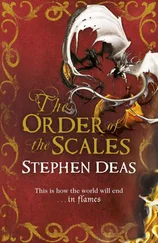1It ought to be here noted, that Joab, Abishai, and Asahel were all three David's nephews, the sons of his sister Zeraiah, as 1 Chronicles 2:16; and that Amasa was also his nephew by his other sister Abigail, ver. 17.
CHAPTER 2
That Upon The Slaughter Of Ishbosheth By The Treachery Of His Friends, David Received The Whole Kingdom
Table of Contents
1. When Ishbosheth, the son of Saul, had heard of the death of Abner, he took it to heart to be deprived of a man that was of his kindred, and had indeed given him the kingdom, but was greatly afflicted, and Abner's death very much troubled him; nor did he himself outlive any long time, but was treacherously set upon by the sons of Rimmon, (Baanah and Rechab were their names,) and was slain by them; for these being of a family of the Benjamites, and of the first rank among them, thought that if they should slay Ishbosheth, they should obtain large presents from David, and be made commanders by him, or, however, should have some other trust committed to them. So when they once found him alone, and asleep at noon, in an upper room, when none of his guards were there, and when the woman that kept the door was not watching, but was fallen asleep also, partly on account of the labor she had undergone, and partly on account of the heat of the day, these men went into the room in which Ishbosheth, Saul's son, lay asleep, and slew him; they also cut off his head, and took their journey all that night, and the next day, as supposing themselves flying away from those they had injured, to one that would accept of this action as a favor, and would afford them security. So they came to Hebron, and showed David the head of Ishbosheth, and presented themselves to him as his well-wishers, and such as had killed one that was his enemy and antagonist. Yet David did not relish what they had done as they expected, but said to them, "You vile wretches, you shall immediately receive the punishment you deserve. Did not you know what vengeance I executed on him that murdered Saul, and brought me his crown of gold, and this while he who made this slaughter did it as a favor to him, that he might not be caught by his enemies? Or do you imagine that I am altered in my disposition, and suppose that I am not the same man I then was, but am pleased with men that are wicked doers, and esteem your vile actions, when you are become murderers of your master, as grateful to me, when you have slain a righteous man upon his bed, who never did evil to any body, and treated you with great good-will and respect? Wherefore you shall suffer the punishment due on his account, and the vengeance I ought to inflict upon you for killing Ishbosheth, and for supposing that I should take his death kindly at your hands; for you could not lay a greater blot on my honor, than by making such a supposal." When David had said this, he tormented them with all sorts of torments, and then put them to death; and he bestowed all accustomed rites on the burial of the head of Ishbosheth, and laid it in the grave of Abner.
2. When these things were brought to this conclusion, all the principal men of the Hebrew people came to David to Hebron, with the heads of thousands, and other rulers, and delivered themselves up to him, putting him in mind of the good-will they had borne to him in Saul's lifetime, and the respect they then had not ceased to pay him when he was captain of a thousand, as also that he was chosen of God by Samuel the prophet, he and his sons; 1and declaring besides, how God had given him power to save the land of the Hebrews, and to overcome the Philistines. Whereupon he received kindly this their alacrity on his account; and exhorted them to continue in it, for that they should have no reason to repent of being thus disposed to him. So when he had feasted them, and treated them kindly, he sent them out to bring all the people to him; upon which came to him about six thousand and eight hundred armed men of the tribe of Judah, who bare shields and spears for their weapons, for these had, till now, continued with Saul's son, when the rest of the tribe of Judah had ordained David for their king. There came also seven thousand and one hundred out of the tribe of Simeon. Out of the tribe of Levi came four thousand and seven hundred, having Jehoiada for their leader. After these came Zadok the high priest, with twenty-two captains of his kindred. Out of the tribe of Benjamin the armed men were four thousand; but the rest of the tribe continued, still expecting that some one of the house of Saul should reign over them. Those of the tribe of Ephraim were twenty thousand and eight hundred, and these mighty men of valor, and eminent for their strength. Out of the half tribe of Manasseh came eighteen thousand, of the most potent men. Out of the tribe of Issachar came two hundred, who foreknew what was to come hereafter, 2but of armed men twenty thousand. Of the tribe of Zebulon fifty thousand chosen men. This was the only tribe that came universally in to David, and all these had the same weapons with the tribe of Gad. Out of the tribe of Naphtali the eminent men and rulers were one thousand, whose weapons were shields and spears, and the tribe itself followed after, being in a manner innumerable (thirty- seven thousand). Out of the tribe of Dan there were of chosen men twenty-seven thousand and six hundred. Out of the tribe of Asher were forty thousand. Out of the two tribes that were beyond Jordan, and the rest of the tribe of Manasseh, such as used shields, and spears, and head-pieces, and swords, were a hundred and twenty thousand. The rest of the tribes also made use of swords. This multitude came together to Hebron to David, with a great quantity of corn, and wine, and all other sorts of food, and established David in his kingdom with one consent. And when the people had rejoiced for three days in Hebron, David and all the people removed and came to Jerusalem.
1This may be a true observation of Josephus's, that Samuel by command from God entailed the crown on David and his posterity; for no further did that entail ever reach, Solomon himself having never had any promise made him that his posterity should always have the right to it.
2These words of Josephus concerning the tribe of Issachar, who foreknew what was to come hereafter," are best paraphrased by the parallel text. 1 Chronicles 12:32, "Who had understanding of the times to know what Israel ought to do;" that is, who had so much knowledge in astronomy as to make calendars for the Israelites, that they might keep their festivals, and plough and sow, and gather in their harvests and vintage, in due season.
CHAPTER 3
How David Laid Siege To Jerusalem; And When He Had Taken The City, He Cast The Canaanites Out Of It, And Brought In The Jews To Inhabit Therein
Table of Contents
1. Now the Jebusites, who were the inhabitants of Jerusalem, and were by extraction Canaanites, shut their gates, and placed the blind, and the lame, and all their maimed persons, upon the wall, in way of derision of the king, and said that the very lame themselves would hinder his entrance into it. This they did out of contempt of his power, and as depending on the strength of their walls. David was hereby enraged, and began the siege of Jerusalem, and employed his utmost diligence and alacrity therein, as intending by the taking of this place to demonstrate his power, and to intimidate all others that might be of the like evil disposition towards him. So he took the lower city by force, but the citadel held out still; 1whence it was that the king, knowing that the proposal of dignities and rewards would encourage the soldiers to greater actions, promised that he who should first go over the ditches that were beneath the citadel, and should ascend to the citadel itself and take it, should have the command of the entire people conferred upon him. So they all were ambitious to ascend, and thought no pains too great in order to ascend thither, out of their desire of the chief command. However, Joab, the son of Zeruiah, prevented the rest; and as soon as he was got up to the citadel, cried out to the king, and claimed the chief command.
Читать дальше












